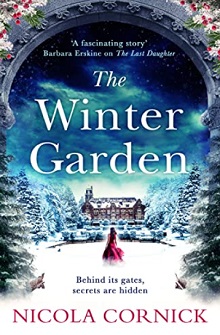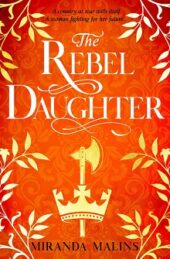The Winter Garden is a historical fiction time-slip novel, exploring the Gunpowder Plot as it has never been done before. Unravelling the myths, legends and stories we know about the events of 1605, Nicola Cornick brings to life the people behind our modern-day celebrations of the 5th November.
Written as a dual-timeline novel, we follow Lucy in the present day as she escapes to her family’s ancestral home to grieve the end of her music career due to ill-health. As she struggles to come to terms with her loss, and grapples to imagine her new future, the past begins to offer answers. Staying at the aptly named ‘Gunpowder Barn’, originally home to Robert Catesby, Lucy begins dreaming of a woman called Catherine. Feeling a strong emotional pull that defies explanation, and captivated by a mystery that has spanned centuries, Lucy must uncover the truth and facilitate peace for Catherine and herself.
Meanwhile, in the lead-up to the infamous events of 1605, Anne Catesby’s concern for her son Robert is ever-increasing. Consumed by religious fanaticism, and no longer restrained by the calming temperament of his wife Catherine, Robert has abandoned his family in search of redemption and a Catholic reclamation of the English throne. Whilst Robert seeks to kill King James I during the State Opening of Parliament, his loved ones must fight to protect their most prized treasures. To do so, Anne must face the most difficult choice of her life – who should she save?
Nicola Cornick is brilliant in her evocation of the emotions and experiences of the women most directly impacted by the infamous Gunpowder Plot. Moving away from traditional narratives of Guy Fawkes and Robert Catesby and their ideological agendas, Cornick imagines a history with women at its centre: she exposes the stress, trauma and grief they would have experienced as their worlds were irrevocably changed by the actions of men.
The Winter Garden is a beautiful tribute, not only to these women, but to the architecture of the past. Cornick’s love of heritage sites and local history is evident in her ability to effortlessly bring to life the buildings we associate with key historical moments. Moreover, her focus on horticulture offers an important message about the impact we have on nature and landscapes.
Cornick is clever in her writing of her protagonists. Whilst Anne’s chapters are written in first person – offering intimacy and a connection to an often-intangible past – Lucy’s chapters are written in the third person, facilitating a connection between Lucy and the reader, who both possess knowledge of the infamous Gunpowder Plot. Despite these distinguishing styles, the same thread runs through both storylines: using various elusive “treasures”, Cornick reminds us of what is truly important in life.
The Winter Garden is ultimately a story of the ability of emotions to bridge all borders. Despite being separated by centuries and circumstances, Lucy, Catherine and Anne are connected by the same thing: as Cornick says, “grief calls to grief”. This book offers a reminder that history and the past are not as distant as we might imagine.
Ella Beales is a Historical Researcher, Archivist and Public Historian.






